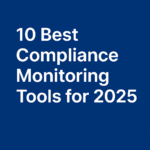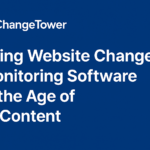08 Nov

The Challenge Facing Compliance Officers in the Financial Services Sector
Compliance is a major challenge for firms operating in highly regulated industries that rely on external networks of agents or affiliates to sell and/or promote their products. In wealth management, insurance, and lending industries, regulations stipulate that any “content” that is publicly accessible is considered to be advertising and as such, subject to strict compliance oversight. For example, US-based Financial Advisors are subject to a rule called FINRA 2210(b) which stipulates that:
Retail communication consists of any written (including electronic) communication that is distributed or made available to more than 25 retail investors within any 30 calendar-day period. A retail investor is any person other than an institutional investor, regardless of whether the person has an account with the firm.
Given that an advisor’s website, professional bio, social media account(s), and blog posts would of course be ‘made available’ to more than 25 “potential investors” (which is defined as anyone who is not a current investor), this regulation is a major issue.
Now, for a truly independent Financial Advisor or a compliance officer for a small firm with only a few advisors, the impact isn’t too severe as the number of requests shouldn’t be too great (unless some of your advisors are actively building their digital presence, which is certainly a possibility).
Unfortunately, the majority of Financial Advisors are registered/licensed affiliates of a large Broker-Dealer or Wirehouse which can have thousands or even tens of thousands of advisors in their network. It’s these large organizations for which advertising regulations have become so problematic in the digital age.
Compliance Monitoring & Website Archiving Across the Financial Services Sector
The same is true for Insurance companies that rely on independent agents to promote and sell their product offerings. They’re careful to provide training and to remind these agents how important it is that their products are described accurately in any public communications but that’s very tough to monitor.
Examples of firms in other industries facing a similar challenge include Online lenders, P2P players, or even retail banks/credit card issuers. These firms use a large, disconnected network of marketing affiliates to promote their products and compensate these affiliates for any leads they produce.
While the compliance departments are of course very diligent to ensure that their offerings are represented / fairly and include any required legal disclaimers, they have little control over if / how the language in these materials may change after their initial approval.
Whether it be an insurance company, Broker-Dealer / Wirehouse, a credit card issuer, or any other highly regulated industry employing an affiliate sales/advertising model, firms in these industries all share a significant compliance burden. While the compliance departments within these firms can do everything in their power to try to instill proper compliance practices among their affiliates, they are perpetually liable for any content that is published or modified without having gone through a thorough review/approval process.




